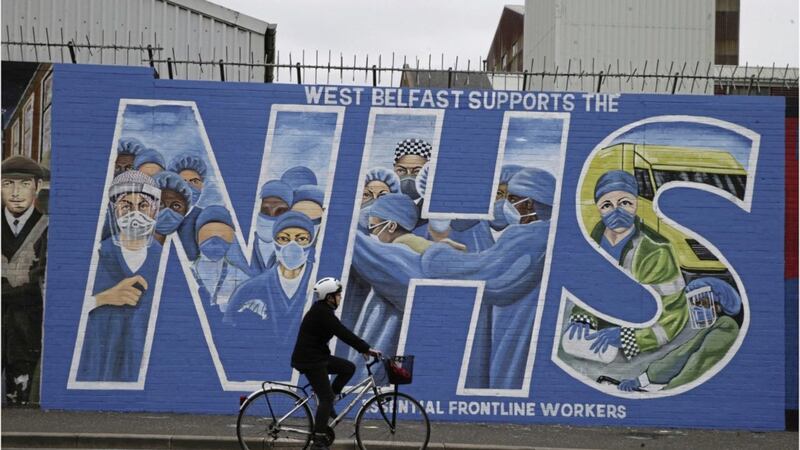Health service waiting times in Northern Ireland have risen sharply, with the health minister warning that the figures will only get worse due to the impact of coronavirus.
The lastest statistics show that, of March 31, the number of people waiting to see a consultant had risen 6.3% in 12 months.
A total of 307,066 patients were waiting for an appointment with a consultant.
Although day case surgery hubs to handle cataract and varicose vein procedures were put in place in 2018, 1,503 patients were waiting for cataract treatment at a regional assessment centre at the end of March.
Almost four-fifths (79.1%) of patients were waiting more than nine weeks for a first appointment with a consultant, compared with 74% on March 31 last year.
According to a Stormont target, at least 50% of patients should wait no longer than nine weeks for a first outpatient appointment and no patient should wait longer than 52 weeks.
Despite the ministerial target, Around 38% (117,066) of patients were waiting more than 52 weeks to see a consultant compared with 33.9% (97,851) on March 31 2019.
Health Minister Robin Swann said the figures were “very disappointing but not unexpected” and warned that statistics for the next quarter, which will include the months the north has spent in coronavirus lockdown, "will make even more depressing reading".
“The onslaught of Coronavirus is something that we could never have contemplated when we started the transformation of health and social care, and the truth is that today’s statistics only cover the position to the end of March, so simply provide an early indication of the full impact of the virus on waiting times," he said.
"I need to be very honest and signal that the figures for the next quarter, when published, will make even more depressing reading."

He said the north's long waiting lists can only be tackled through extra funding and warned that the ongoing impact of coronavirus will mean hospitals can only see a limited number of patients.
"For the foreseeable future, we will have to plan around the continuing threat posed by Covid-19," he said.
"This will severely constrain the capacity of our hospitals to scale up activity - social distancing in hospitals means reduced numbers in waiting rooms and on theatre lists.
“We have started the process of re-building our health and social care system – and it is essential that our emphasis is ‘re-building’ rather than ‘restoring’.
"The truth is that our health service will never be the same again – the challenge for us is to make that reality an opportunity rather than a threat. The way we use services will have to change and innovations like virtual clinics will increasingly become the norm.
“For those who think or call for a return to where we were at the start of January, I simply say we cannot go there. The system was broken and struggling then so simply returning to the same place would be a disservice not just to those who are waiting but to all those who have worked so hard in the last few weeks."
Dr Tom Black, chair of BMA’s Northern Ireland Council, said according to a recent survey, 60% of doctors in the north said the situation was "worsening" for non-covid patients.
"This is why we must not return to the old traditional ways of working in both primary and secondary care if we want to have any chance of reducing these lists," he said.
"The added challenge of social distancing guidelines means we are having to review everything we do right across the health service."
He added: "Doctors need to be properly included in any reform of the health service that now must cope with treating Covid-19 patients, whilst resuming care put on hold for those with other health conditions."








